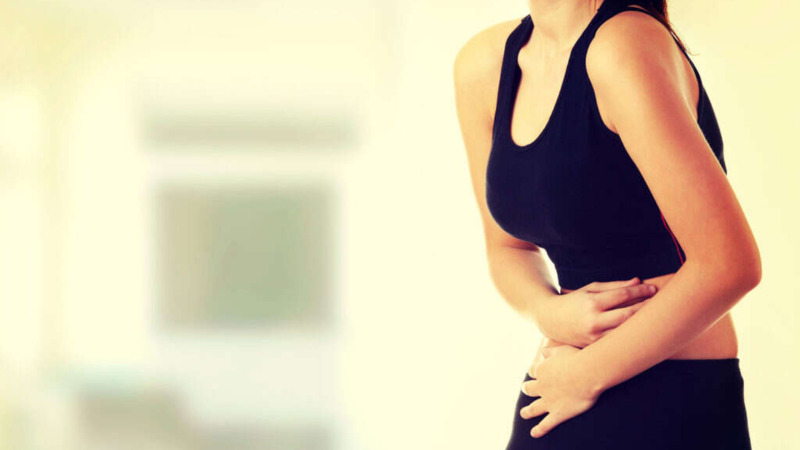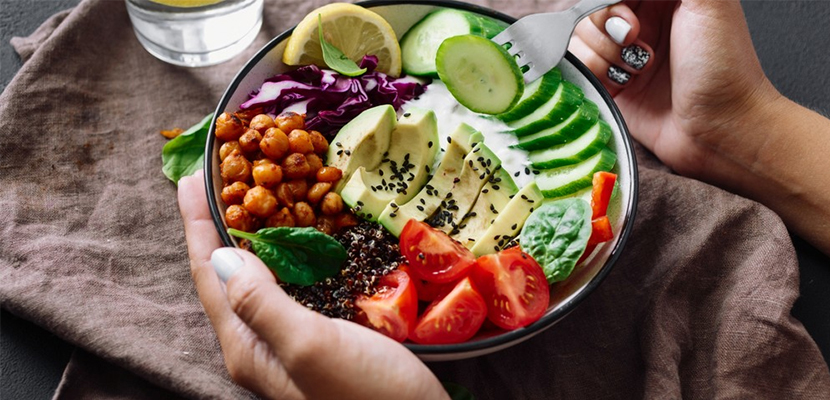7 Foods to Avoid with Diverticulitis Tips for Managing Your Diet

Diverticulitis is a common digestive condition that causes inflammation or infection in small pouches called diverticula that can form along the wall of your digestive tract. While diverticulitis can be quite painful, adjusting your diet is key to managing symptoms and preventing complications. This article outlines 7 foods to avoid with diverticulitis and provides tips for managing your diet during a diverticulitis flare-up.
What is Diverticulitis? 7 Foods to Avoid with Diverticulitis
Diverticulitis occurs when diverticula in your colon become inflamed or infected. Diverticula are small, bulging sacs that can form on the lining of your digestive tract. Diverticulitis symptoms may include:
Abdominal Pain
Persistent pain or tenderness around your lower left abdomen are common symptoms. The pain may be severe and come on suddenly.
Fever and Chills
An infection of the diverticula can cause fever and chills. See your doctor promptly if they occur along with abdominal pain.
Nausea and Vomiting
Inflammation can irritate the stomach and lead to nausea or vomiting. These symptoms may make it difficult to stay hydrated.
Some people with diverticulitis experience constipation, while others have diarrhea. Bowel habit changes are common.
Diverticula themselves often cause no signs or symptoms and are relatively common, especially after age 40. However, about 20% of people with diverticula will develop diverticulitis at some point.
Why are Certain Foods Harmful for Diverticulitis?
During a bout of diverticulitis, it’s important to avoid foods that can get lodged in the diverticula or irritate the colon. Specific foods to avoid include:
7 Foods to Avoid with Diverticulitis – Seeds and Nuts
Small seeds and nuts can get trapped in the diverticula and cause infection and inflammation.
7 Foods to Avoid with Diverticulitis – High-Fiber Foods
Fiber does help prevent diverticula formation over the long-term. But high-fiber foods like whole grains can be difficult to digest and aggravate existing inflammation.
7 Foods to Avoid with Diverticulitis – Fatty and Fried Foods
Foods high in saturated fat can worsen inflammation. Additionally, trying to digest fatty foods may overtax your digestive system.
The following sections outline 7 food categories you may need to limit or avoid completely during diverticulitis flares. Work closely with your doctor regarding specific dietary restrictions and recommendations.
Processed Foods to Avoid with Diverticulitis
Processed snack foods and fast foods are common culprits for irritation during a diverticulitis flare-up. Here’s what you should know.
7 Foods to Avoid with Diverticulitis – Potato Chips and Popcorn
The rough edges and sharp corners of chips, pretzels, and popcorn can scrape and poke the inflamed pockets along your intestinal lining. Over time, eating these foods regularly also appears to increase your overall risk of developing diverticulitis.
7 Foods to Avoid with Diverticulitis – Refined Carbohydrates
White bread, pasta, pastries and other refined carbs provide little nutritional value and act similarly to sugar in the body. In excess, refined carbs promote inflammation. Limit these foods as much as possible.
High-Fiber Foods to Avoid with Diverticulitis
While fiber has many long term benefits, high-fiber foods can irritate your colon during an acute diverticulitis flare up.
Raw Fruits and Vegetables
Fruits and veggies are extremely healthy, providing ample vitamins, minerals, antioxidants and fiber. However, when your diverticula are inflamed and tender, digestion becomes significantly more difficult. Stick to cooked vegetables and peeled fruits.
Whole Grains and Cereals
Similarly, whole grains like brown rice, whole wheat pasta, bran cereals, granola, etc. are great fiber sources when your digestion is healthy. But they require more work to breakdown and can irritate existing inflammation in your colon.
Foods High in Saturated Fat to Avoid with Diverticulitis
Diets high in animal fats and fried foods promote harmful inflammation. Be especially cautious of the following during diverticulitis flares:
Deli and Processed Meats
Bacon, salami, sausage, hot dogs and the like often contain nitrates, excessive sodium and saturated fats that can worsen inflammation.
Pizza, Burgers and Fried Foods
Similarly, greasy foods like pizza, burgers, fries and fried chicken tend to be high calorie and overflowing with saturated fats. Avoid them when possible.
Spicy Foods to Avoid with Diverticulitis
Spices contain oils that can inflame the lining of your intestines and colon when diverticula become infected. Limit intake of:
Hot Peppers and Hot Sauce
Foods flavored with hot peppers or hot sauce get their heat from a compound called capsaicin. Capsaicin acts as an irritant that can further inflame tender diverticula.
Black Pepper and Chile Powder
Likewise, black pepper and chile powders made from spices also contain irritating oils. Stick to small amounts of mild herbs and flavors.
Alcohol and Diverticulitis: What You Need to Know
Alcohol, especially in excess, negatively impacts gut health and inflammation. Heavy drinking also delays healing:
Worsens Inflammation
All alcoholic beverages can promote inflammation, especially in those with digestive conditions like diverticulitis.
Contributes to Constipation
Alcohol dehydrates the body and frequently causes constipation as a result. For those struggling with diverticulitis, constipation causes further discomfort and bloating.
Limit alcoholic intake as much as possible during symptom flares. Beer, wine and liquor can all contribute to inflammation. Consult your doctor about specific recommendations.
Dairy Products and Diverticulitis: Are They Safe?
Many adults have some degree of lactose sensitivity or struggle to digest dairy. For those with diverticulitis, dairy products may provoke symptoms:
Can Promote Constipation
Milk, cheese, ice cream and other dairy items are common culprits for constipation. Bulk-forming laxatives may be needed if diverticulitis already makes bowel movements difficult.
Increase Inflammation
Some compounds naturally found in milk may enhance inflammatory pathways for those sensitive. Always choose low-fat options and limit intake if you experience intestinal discomfort.
If you already struggle to digest dairy, developing diverticulitis is a sign to limit or eliminate it from your diet, especially when during symptom flares.
Red Meat and Diverticulitis: Should You Cut It Out?
Occasionally indulging in a lean cut of beef, pork or lamb likely won’t impact diverticulitis much. However, regularly eating meats, especially those high in saturated fat, may cause issues:
Tough to Digest
Red meat takes significant time and effort to breakdown compared to other protein sources like poultry, fish and plant-based proteins. Choose simpler proteins whenever possible.
Higher in Fatty Acids
Grass-fed varieties provide more healthy omega fats compared to conventional grain-fed meat. But all red meat is relatively high in saturated fats, which fuel inflammation.
For those struggling with frequent or severe diverticulitis flares, reducing red meat intake appears beneficial. Replace it with leaner poultry, fish and plant-based proteins like beans, lentils, tofu or tempeh.
Tips for Managing Your Diet with Diverticulitis
Avoiding problematic foods provides symptom relief in the short term. But proper nutrition also aids the healing process long term. Here are diet tips for managing diverticulitis:
Stay Hydrated
Drink sufficient water and decaffeinated fluids like herbal tea to stay hydrated. Prevent painful diverticulitis complications like a blockage or abscess whenever possible.
Choose Anti-Inflammatory Foods
Focus your diet around nourishing foods shown to fight inflammation. These include leafy greens, berries, olive oil, fatty fish, ginger and turmeric.
Get Enough Vitamin D
Many adults are deficient in Vitamin D, which helps regulate inflammatory pathways. Take a daily supplement, get moderate sun exposure and eat vitamin D-rich foods like eggs, fish and mushrooms.
Adjusting your diet requires patience and discipline, but is crucial for effectively managing diverticulitis flares. Work closely with your doctor and dietitian to develop a customized nutrition plan.
Conclusion
Diverticulosis and diverticulitis can be extremely painful and frustrating digestive conditions. Avoiding specific foods known to aggravate symptoms provides some relief during flare-ups. However, completely removing diverticula requires comprehensive lifestyle changes over the long term. Work closely with your doctor regarding medications, appropriate dietary restrictions, and chronic disease management. Patiently adjusting your diet remains key for lasting diverticulitis recovery.









